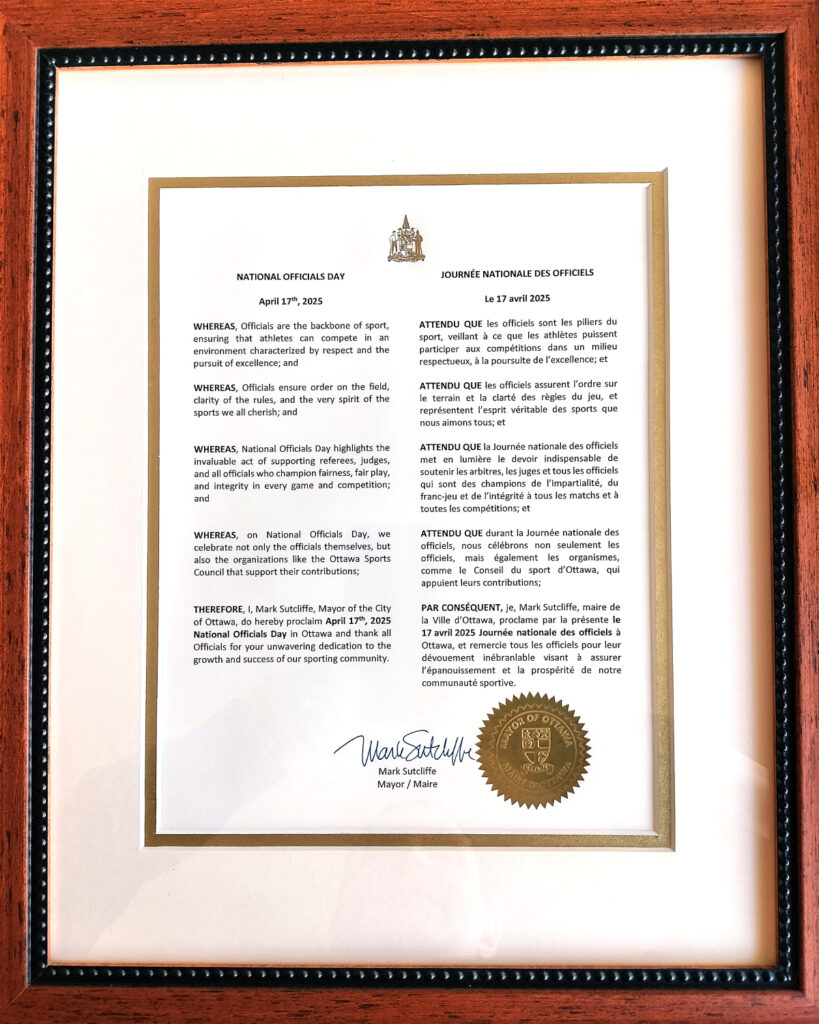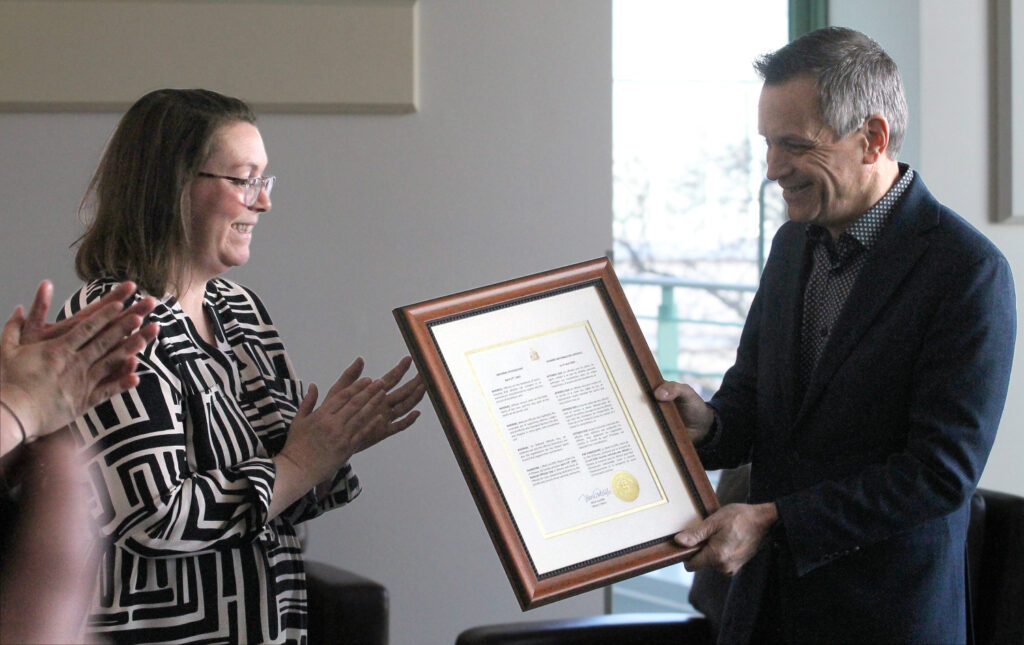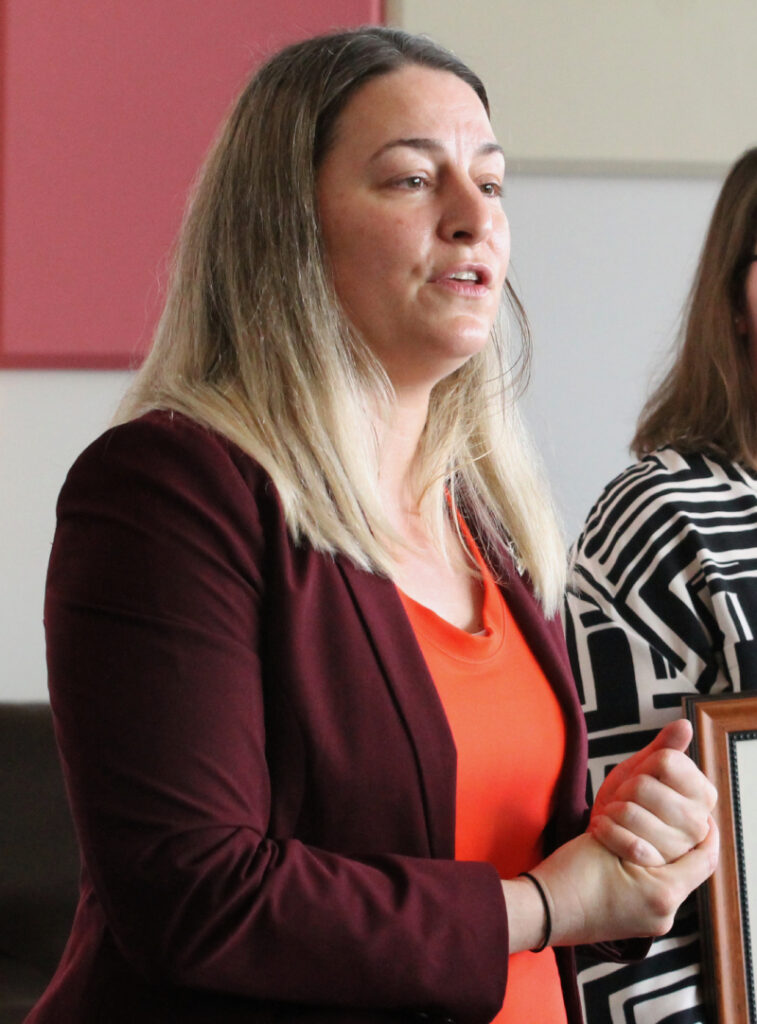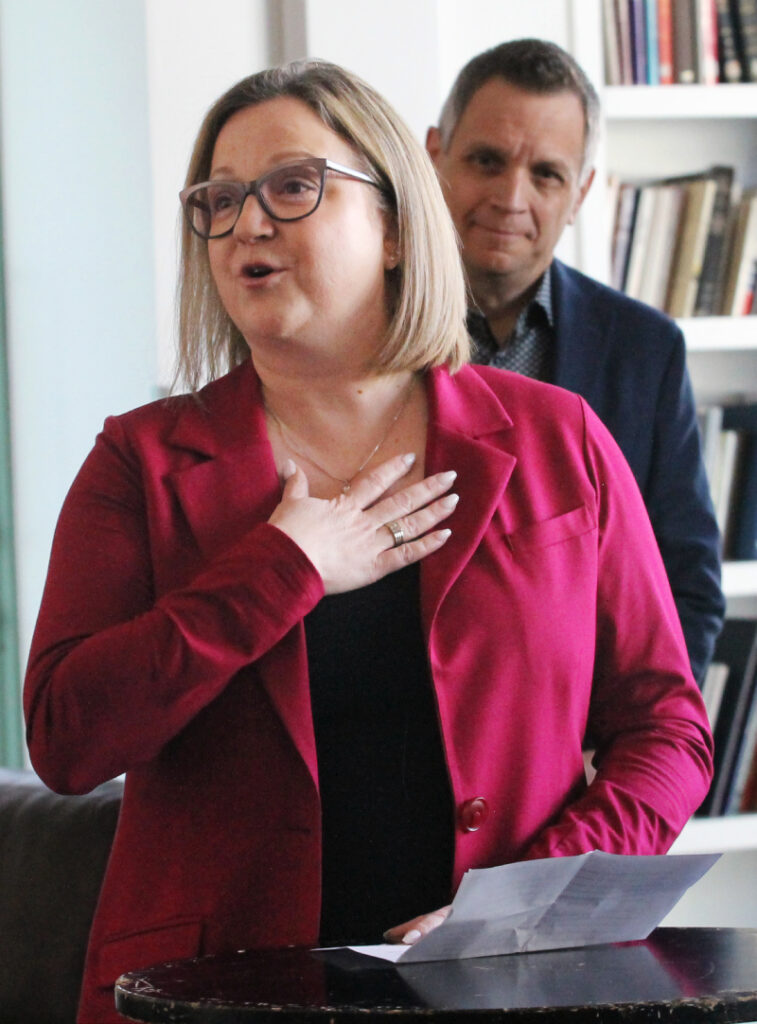
In a room full of referees, umpires and officials, there were many whistles heard this morning, but on this occasion they were sounds of appreciation instead of foul calls as the Ottawa Sport Council co-hosted a breakfast event celebrating National Officials Day at City Hall.
“Thank you for the work that you do to support sports and to support young people in sports,” Mayor Mark Sutcliffe told the crowd of roughly 75, which included his daughter’s gymnastics coach, he noted.
Sutcliffe presented an official proclamation to Ottawa Sport Council Executive Director Frances Mercer to mark National Officials Day – a first for the City of Ottawa – which noted that officials are “the backbone of sport” and essential to “the very spirit of the sports we all cherish” while saluting them “for your unwavering dedication to the growth and success of our sporting community.”


Rideau-Vanier Councillor Stéphanie Plante spearheaded the event. Plante recently became a basketball referee and jarred by the many sports experiencing officials shortages. She is working to see what City policies could help develop more officials, including possible rental discounts for organizations training officials.
Carol-Anne Chénard, a soccer referee who called FIFA Women’s World Cups, Olympic Games and Major League Soccer matches, welcomed initiatives to support and recognize officials in her poignant remarks to the group gathered.
“Sport is so much more than the game that we play on the field,” highlighted the Ottawa Sport Hall of Famer. “It’s a powerful platform that opens doors to countless pathways from coaching to officiating to sports medicine, media, leadership and community development.
“Sports build skills that transcend the sport world. It teaches discipline, hard work, resilience and confidence, traits that shape leaders in every walk of life. When we recognize and invest in these diverse pathways, we empower young athletes to dream big, knowing that there are many ways to stay connected to sports and the game they love, even after the final whistle.
“Growing up as an athlete in Ottawa, I never would have guessed that I would ever become a referee, let alone go to the Olympics. And it was a local coach who gave me the opportunity to learn about refereeing, and along with my teammates, we got to learn and take a referee course. Only a handful of us took him up on the offer to referee an actual game, and I’m the only one who kept doing it a few years later. But that one course at the RA Centre in Ottawa ended up opening a door for me many years after I took it, and looking back, it had a really big role in shaping who I’ve become.

“But just as important as the opportunity sports creates is who gets to walk through those doors as leaders. It’s important that we make an effort to increase representation. I am where I am today because a local team took the time to write a letter, an actual letter, to the provincial association to tell them that they thought I had talent. I was given games based on my performance, not because I was a female.
“Take risks. Make conscious decisions to make your sport inclusive. When our players and our kids and our athletes see leaders that look like them, who share their backgrounds, who face similar challenges, it tells them they belong. It shows them that leadership isn’t reserved for a select few, but it’s possible for everyone. Ensure that everyone in sport can see the different pathways that are available to them to be involved and stay involved in the sport they love.
“And I’d like to share just one last thought. The hardest games that I referred as an official were not the games in front of 70,000 fans or when I referred the Olympic final. It was when I was a young referee at the local park trying to manage the parents and the adult coaches, when I could hear everything that was said and it all felt very personal.
“We are facing a critical shortage of officials across all sports. We need to recognize that officials need to learn and develop just like the players, that an investment in them is an investment in your sport. Take a refereeing course to better understand the laws or volunteer as an official, and don’t be a silent bystander when referees or officials are abused.
“Officials are a critical part of sport. They are not the champions that will seek that last-minute basket or the ones that draw the crowds, but they work hard in the background. They’re fighting and striving to referee that final. They keep sport fair and they keep it safe. Without them, the game simply wouldn’t work.
“So today, in Ottawa on National Sport Officials Day, take the time to thank the officials, and maybe even hug the referee.”